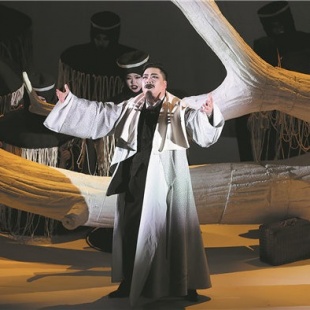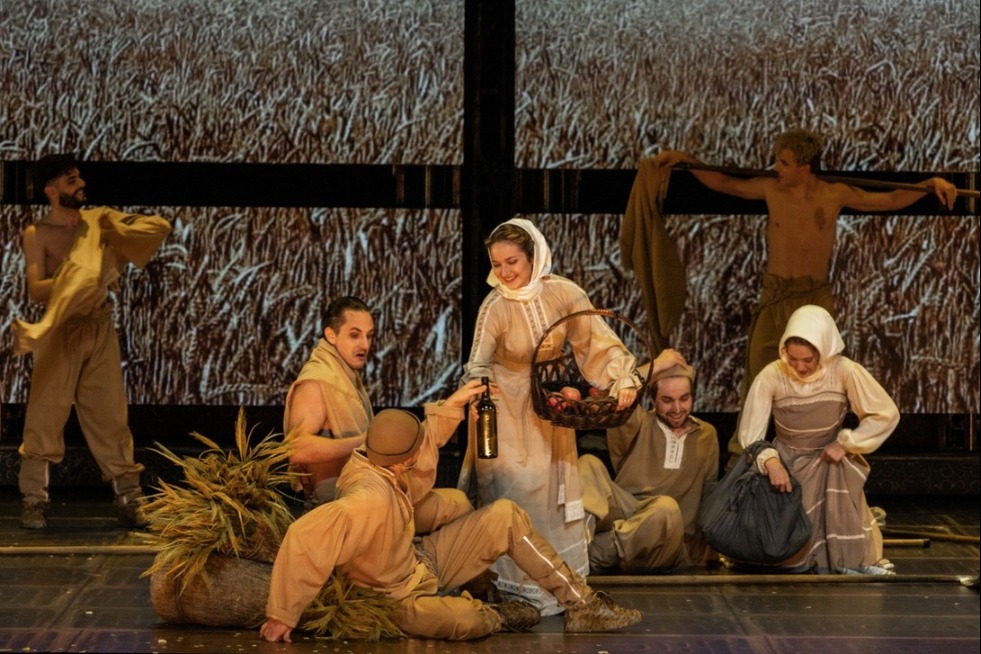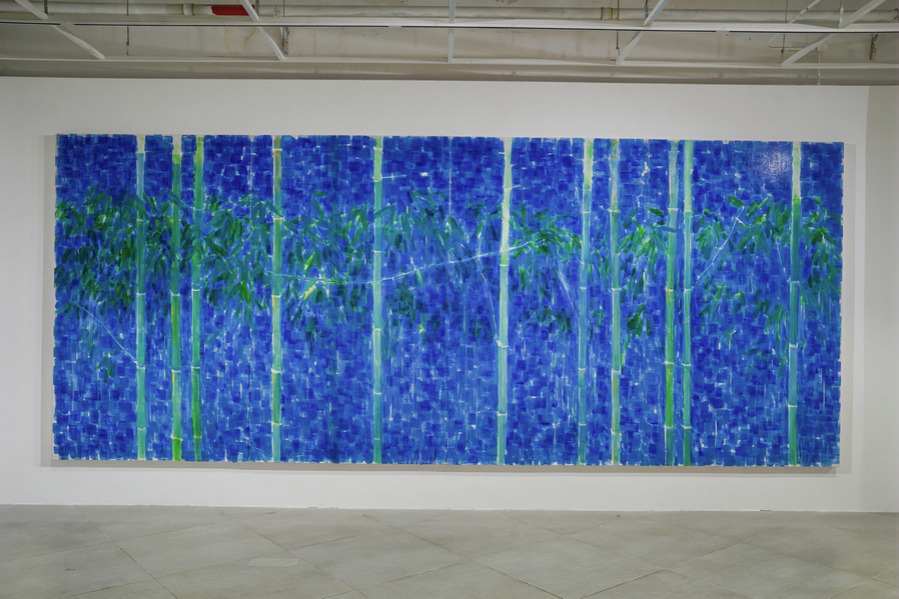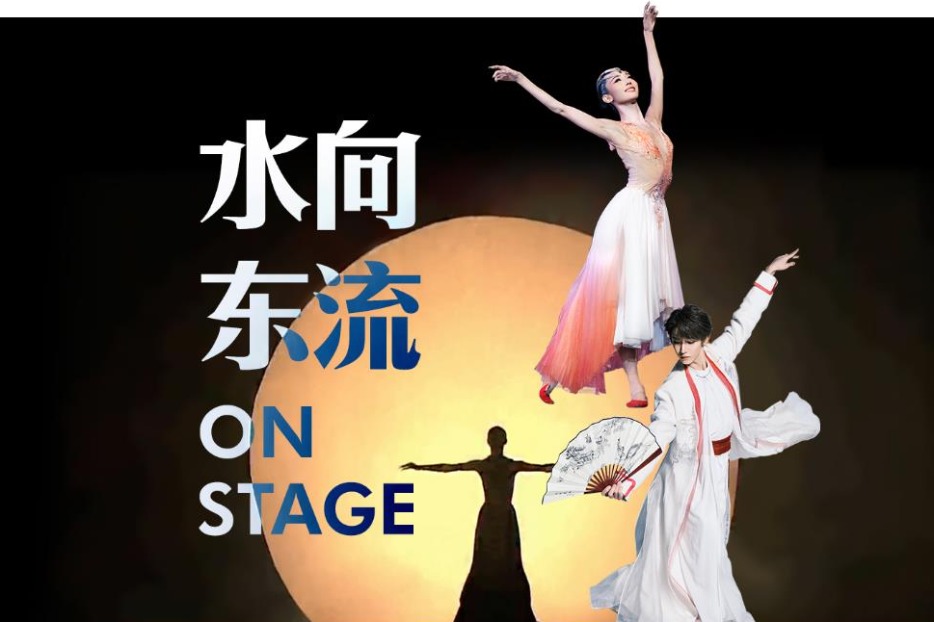The bones of a good story
Chamber opera production resurrects a Chinese classic on the cycle of life by renowned writer Lu Xun, Chen Nan reports.

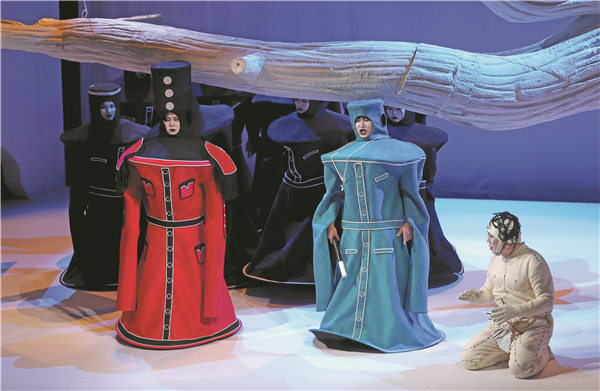
Chamber opera production resurrects a Chinese classic on the cycle of life by renowned writer Lu Xun, Chen Nan reports.
Lu Xun (1881-1936), whose real name was Zhou Shuren, was known for his versatility as a short story writer, essayist, literary critic and editor.
Resurrection of the Skeleton, the final story in the writer's collection of rewritings of ancient myths Gushi Xinbian, or Old Tales Retold, which was published in 1936, is rare among his works, as it is written as a play.
On Dec 20, a Chinese chamber opera, titled Rising From the Dead, which was inspired by Resurrection of the Skeleton and composed by Wen Deqing, premiered in Beijing.
Directed by Yi Liming, the chamber opera depicts the cycle of life and death.
It tells the story of the philosopher Zhuangzi of the Warring States period (475-221 BC), who is invited to visit the ruler of Chu State and has been on the road for many days. As he passes through an area of wilderness, he discovers a skull, and decides to bring it back to life. When he calls upon the Master of Fate, ghosts warn him of the consequences, but Zhuangzi insists. The resurrected skeleton comes back to life as a naked peasant, who is lost and confused by the questions asked by Zhuangzi, such as where he came from and which year he lived in. All the peasant wants is clothes to cover his nakedness and money to return home. Zhuangzi tries to scare him off by invoking his reputation, but the peasant has never heard of him. When the peasant attacks him, Zhuangzi pulls out a whistle, and an officer of the law comes to his aid.
According to Wen, the chamber opera is an expanded adaption of Lu Xun's Resurrection of the Skeleton and Zhuangzi's parable Zhile, or Perfect Enjoyment. The time and space of the original work has been extended into the modern era in the opera, with the second act, which is titled Return as a Skeleton, added to the original plot. While Zhuangzi's dream of resurrecting the skeleton is "fulfilled" in Lu Xun's version, in this opera the resurrected peasant becomes a skeleton again.


